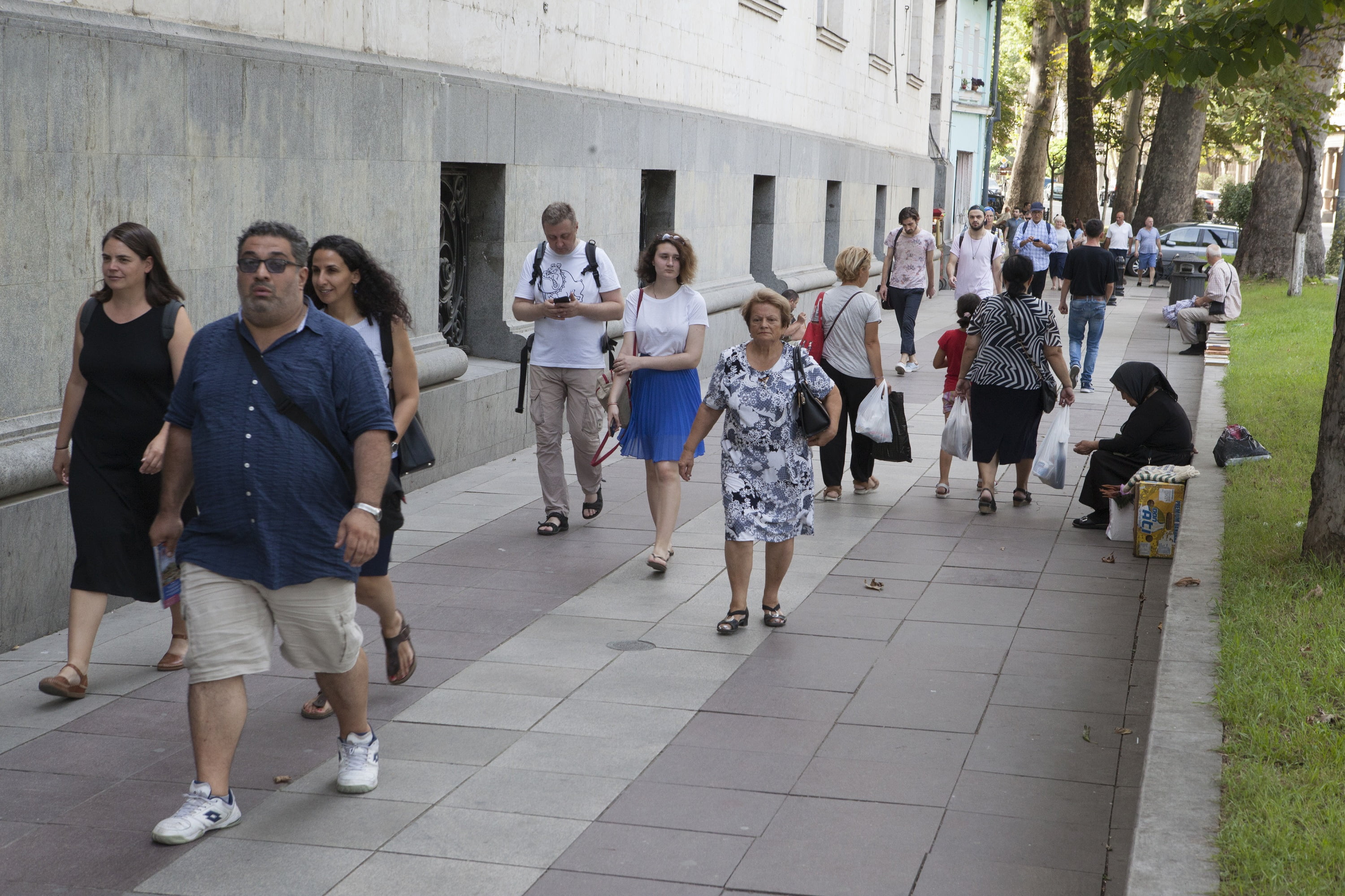On November 22, the Georgian Institute of Politics (GIP) published a policy paper entitled “De-risking Russia: Pathways to Enhanced Resilience for Georgia,” which highlights the divergence in risk perceptions among experts, the Georgian government, and the population. The paper, authored by experts Kornely Kakachia, Salome Kandelaki and Bidzina Lebanidze, calls for the development of a whole-of-society approach to enhance national resilience in the face of global, diffuse and local risks.
Notably, despite differences, all stakeholders identify Russia as the main risk to Georgia, However the report notes that despite identifying Russia as “main political and security danger” in the strategic documents “the actual policy is directed towards appeasing Russia and engaging with it economically.”
The report identifies various global risks, distinguishing between those originating from identifiable geographical locations (global risks) and those non-territorial in nature (diffuse risks). The authors of the paper identify 20 global and diffuse risks relevant to Georgia, the top ones emanating from Russia, and introduce a category of 12 domestic risks which influence their impact on the country.
Nuanced divergencies in risk perceptions
Within the framework of this policy paper, a survey of 36 Georgian experts was conducted. The paper supplements expert opinions with insights from public opinion surveys and national strategic documents.
A comparison between expert and public opinions reveals nuanced differences, especially regarding Russia-related issues. While experts view economic dependence on Russia as a top-level risk, the public holds a more ambivalent stance, recognizing Russia as an economic threat but also supporting certain aspects of economic collaboration.
Additionally, there is a notable gap between expert and public opinions when assessing local risks, with experts prioritizing political concerns, while the public expresses greater concern about socio-economic challenges. Moreover, the paper argues that “the Georgian authorities go further as they see economic relations with Russia as one of the drivers of Georgia’s recent economic growth, and political detente with Russia as important to keep Georgia at peace.”
The authors conclude with recommendations for the government, society and Georgia’s international partners to work together to support Georgia’s resilience building, risk screening, risk prioritization and risk reduction process.
Adopting whole-of-society approach
GIP issues eight recommendations for the effective adoption of the whole-of-society approach to bolster Georgia’s resilience:
- Facilitate and encourage open discussions and cooperation among key actors to bridge the gaps in risk perception;
- Learn from successful international examples like the Swedish Psychological Defense Agency (MPF) and establish a similar framework in Georgia adjusted to the local context and needs;
- Involve diverse stakeholders in the process of risk mapping, risk assessment and the development of risk mitigation strategies;
- Design regular risk-awareness and resilience-building exercises, trainings and workshops modelled on best practices such as the Finnish National Defense Courses;
- Encourage public-private partnership in the process of risk scanning and resilience-building;
- Ensure transparency and accountability in governance and decision-making processes;
- Promote media and digital literacy in Georgian society;
- Focus on shared values and common goals that transcend political divisions by emphasizing issues that unite society, such as economic development, social welfare, or national security.
De-risking Russia
The policy paper issues another eight recommendations for de-risking Russia.
- Diversify imports of critical goods away from Russia to avoid overdependence on Russian imports;
- Diversify exports of major export products away from Russia to avoid overdependence on Russia’s export market;
- Develop a strategic reserve agency to accumulate strategic stockpiles of critical goods to ensure that the country is not vulnerable to Russia’s economic pressure. It can be modelled on available best-practices such as the Finnish National Emergency Supply Agency (Nesa);
- Introduce investment screening mechanisms to prevent the takeover of critical infrastructure assets by Russian (and Chinese) companies;
- Ensure that economic engagement with Russia is in compliance with the international sanctions regime and does not compromise Georgia’s EU accession process and Euro-Atlantic integration prospects;
- Raise public awareness about the risks and dangers related to different dimensions of Russia’s presence (security risks, economic risks, cultural risks);
- Involve all significant societal actors, especially those susceptible to Russia’s malign influence such as the Georgian Orthodox Church, in the process of the development of a risk-identification and risk-management strategy towards Russia;
- Communicate with Western partners on Georgia’s vulnerability to Russia to avoid misunderstandings and damage to Georgia’s Euro-Atlantic integration prospects.
Also Read:
- 01/02/2023 – Georgia Governance Index 2022: Key Findings
